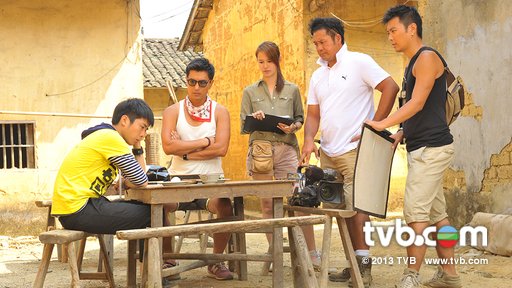All About
Love (2010) as a cultural text represented how we imagine
women, men and lesbian. Basically, people usually stereotype women as passive
and submissive. They are represented as feminine with weak personality, less
sexually experienced, dependent and irrational. In contrast, Men are usually
stereotyped as masculine with strong personality, sexually experienced, independent
and rational. Cranny-Francis,
Stavropoulos and Kirkby stated that this kind of
stereotyping is in a binary opposition, which means they are mutually exclusive
to each other. Women and men are positioned as oppositional in nature. Men are
generally categorized as positive and become the standard whereas women are
categorized as negative (p.1-40) However,
All About Love seems subvert this stereotyping of both woman and man
images.
Moreover, woman can be more sexually experienced
than man. In the film, Anita had more dating experiences and even more sex
experience than Mike. In contrast, Mike was less-experienced. He had his first
sex with Anita and was felt ashamed of being early premature ejaculation during
the sexual intercourse.
Women can be rational while men can be irrational. When Anita and Macy know they are pregnant, they seek for help in Mother’s choice and consult the opinions. They decide to keep their babies and make rational decisions through discussing with each other and friends. However, Robert and Mike are superstitious. For examples, when Anita rejects Mike’s love, Mike took out his tarot card to make prediction that he may have competitors. Also, after Robert and Mike were rejected by Anita and Macy about being the babies’ father, they were depressed and finally made the decision based on the tarot card result.
To a
certain extent, All About Love, as a Lesbian or
bisexual text, stereotype lesbians and bisexuals in terms of their social
status and appearances. The film stereotyped lesbians and bisexuals as middle
class. Both Macy and Anita lived in Central. They had dinner in high class restaurant.
They focus on lifestyle and taste. For example, they put paintings and
decoration at home. They liked wine and enjoyed western style dinner at home.
Lesbians are also represented as well educated.
Macy was a lawyer. She set up her own law firm. Anita is a bank staff. Wai Wai
is a doctor and Connie is also a professional. She got grade 8 in piano and
obtained four master degrees.
In terms of appearances of the characters, lesbian
couples are always represented one as a masculine role and one as feminine
role. For example, Macy is relatively a more masculine female character than
Anita. She got short haircut and less make up. She always wore formal suit in
black and white color tone which gave coolness to the audience. She spoke in
low frequency voice which represented her masculinity. In contrast, Anita was
more feminine. She always wore sharp color long dress or blouses. She got long
and curly hair, put on makeup and accessories. She spoke in relatively high
pitch voice which gave femininity image to audiences. Therefore, the film
stereotyped lesbians in terms of their social status and appearances.
In conclusion, All
About Love subverts the stereotyping of women and men images whereas failed
to subvert the stereotyping image of Lesbians and bisexuals.
Reference
Cranny-Francis, A., Waring, W., Stavropoulos, P. & Kirkby, J.(2003). “Ways of Talking”. In Gender Studies: Terms and Debates, p1-41. New York: Palgrave Macmillan
Shu Jui Ying, Amy



.jpg)